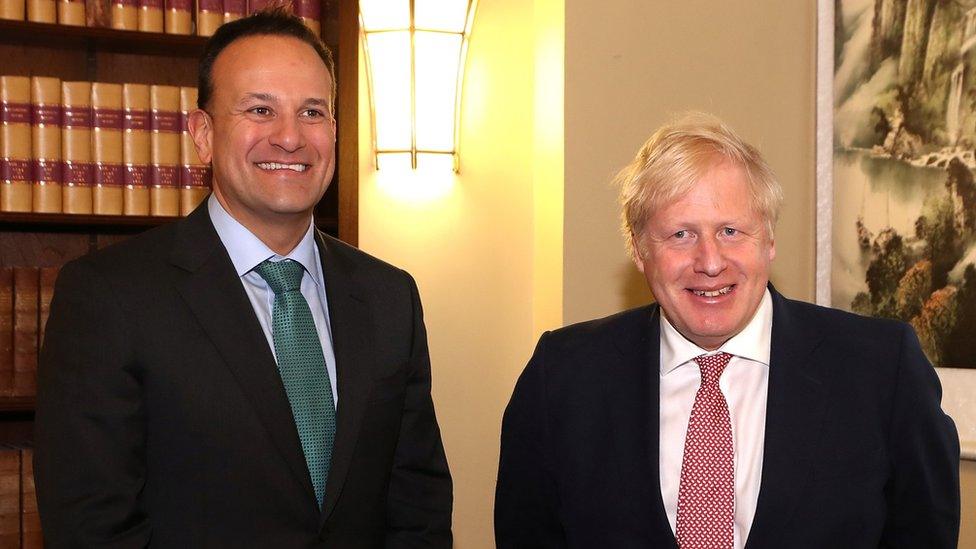Stormont deal: What next?
- Published
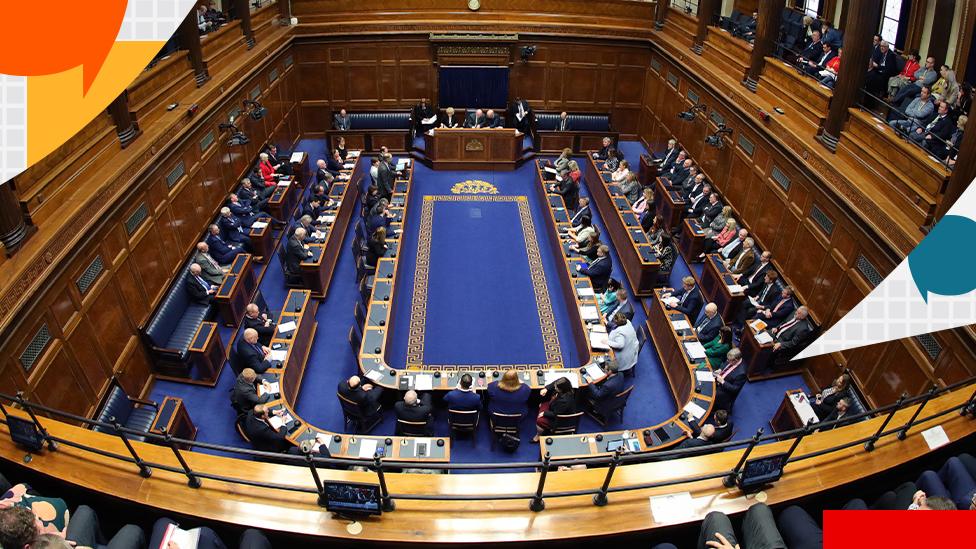
After Northern Ireland's assembly was suspended for for three years, devolution was restored on Saturday with the main five parties agreeing to a power-sharing deal.
On Monday, the UK and Irish prime ministers, Boris Johnson and Leo Varadkar, visited Stormont, with the assembly due to sit again on Tuesday.
New ministers have been holding meetings as they begin to address the issues in their in-trays.
We answer some of your questions on what will happen next:
Now devolution has resumed, what will happen about the legislation passed in Westminster to allow same-sex marriages and abortion that was opposed by the DUP?
BBC News NI looks at the history of Northern Ireland's same-sex marriage debate
Same-sex marriage became legal in Northern Ireland on Monday, while abortion was decriminalised in October after legislation was passed at Westminster.
A consultation is running on how abortion services will be offered; the first in Northern Ireland are expected from April.
In theory, the Northern Ireland Assembly could overturn both of these changes, but there is no majority in the chamber to do this, so the new laws will stay in place.
A lot of finances will be channelled into both the Irish and Ulster-Scots languages; how many people in Northern Ireland use either as their first language?
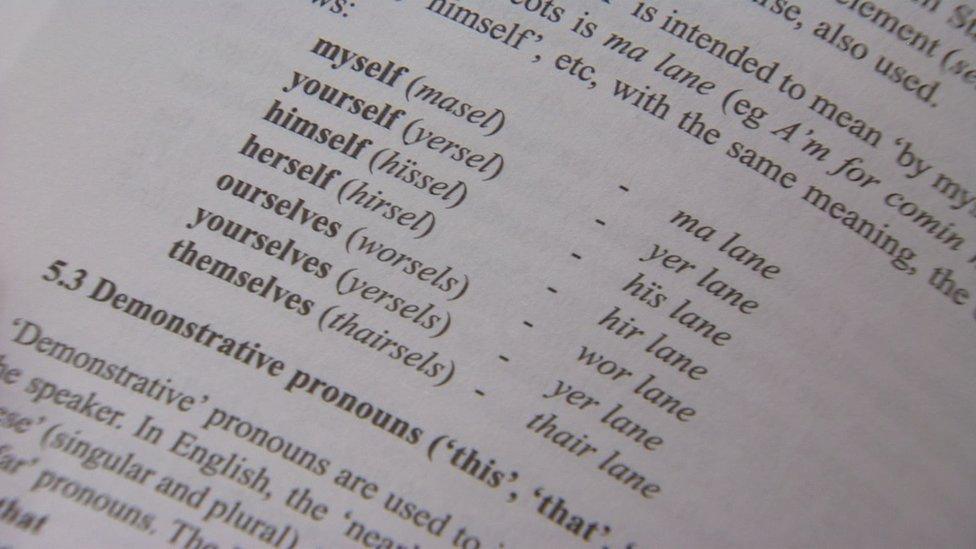
Ulster-Scots is a variant of Scots and a number of dictionaries have been published
The Department for Communities carries out a survey on this topic every other year, external, with the most recent published in November 2018.
It found 15% of the adult population of Northern Ireland had some knowledge of Irish, meaning they could either understand, speak, read or write the language.
Four out of every 100 adults (4%) used Irish at home either on a daily basis or at least very occasionally, while the same proportion used Irish socially, either daily or at least very occasionally, to speak to friends or acquaintances.
The survey found that 14% of the adult population had some knowledge of Ulster-Scots, with 4% using the language at home on a daily basis or at least very occasionally, with 5% using Ulster-Scots socially to speak to friends or acquaintances, either daily or at least very occasionally.
When's the next time the executive will have to call an assembly election? - Erin
Assembly elections are held every five years, so the next election must be held on or before 5 May 2022.
Of course this could change if the assembly collapses again, or if Westminster chooses to change the date for some other reason.
What is the current situation with regard to the inquiry into the Renewable Heating Incentive (RHI) scheme with which the first minister was previously involved? - Peter Lawley
The RHI Inquiry finished hearing evidence last year and the final report could be published at any time, although no date has yet been set.
Anyone who is going to be criticised in the report has already received letters from the inquiry informing them of this.
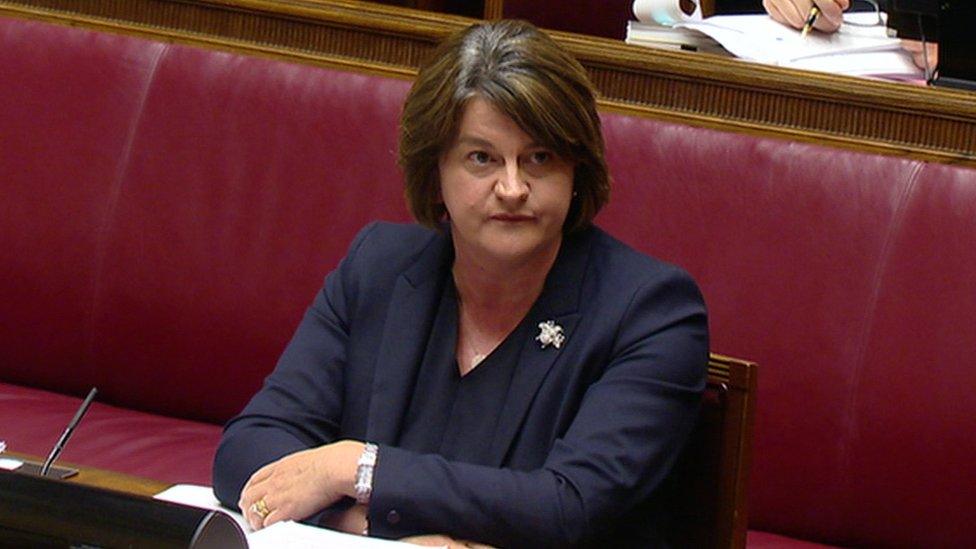
DUP leader Arlene Foster faced seven hours of questioning by the RHI inquiry panel
I've heard talk of support for working parents and childcare being part of this deal - what is being proposed? - John
Childcare is indeed featured in the deal. It states that the executive will publish a childcare strategy and identify resources to deliver extended, affordable and high quality provision of early education and care initiatives for families with children aged 3-4.
Childcare has also been included as a new key priority for the executive.
In addition, the deal commits to establishing a child funeral fund "to ease the burden on families suffering acutely".
Can you please tell me why the Irish prime minister is involved? - Ian
The British and Irish governments are co-guarantors of the Good Friday Agreement, the deal which brought an end to the Troubles and set up power-sharing at Stormont in 1998-1999.
The agreement was both a deal between most of Northern Ireland's political parties at the time and also an international agreement between the British and Irish governments.
But the Irish government has had an official role in Northern Ireland since 1985, when Prime Minister Margaret Thatcher and Taoiseach (Irish PM) Garret Fitzgerald signed the Anglo-Irish Agreement.
- Published11 January 2020
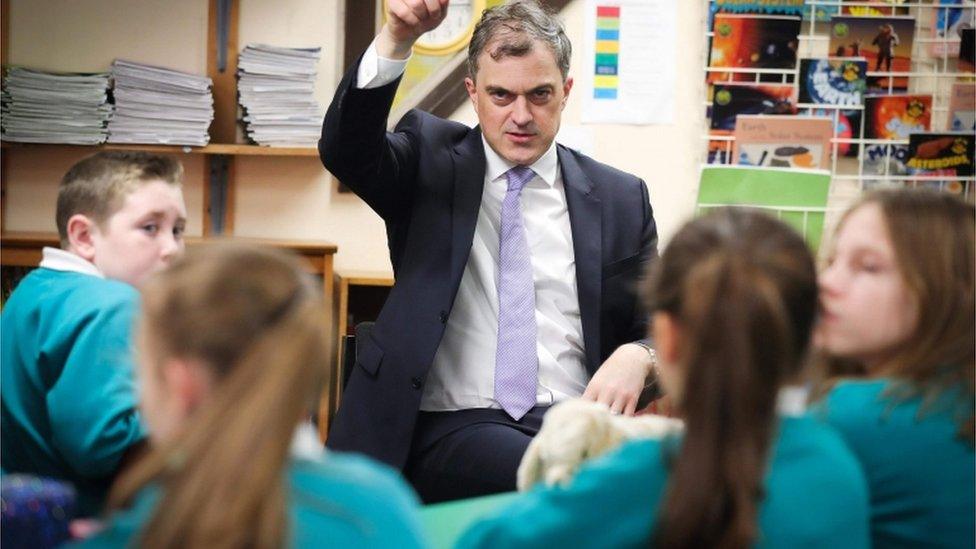
- Published13 January 2020
